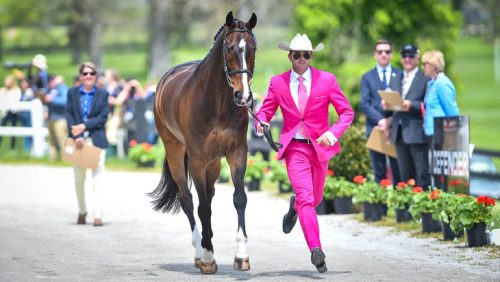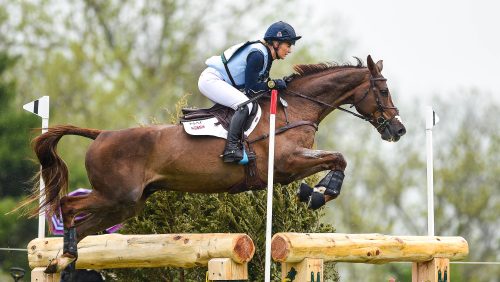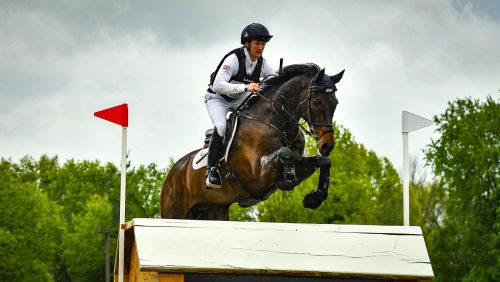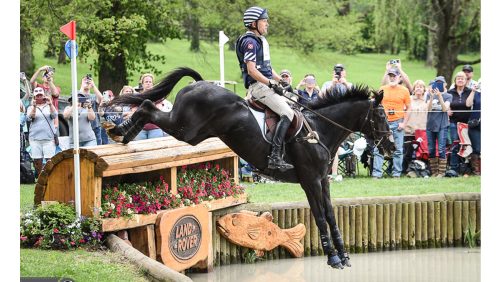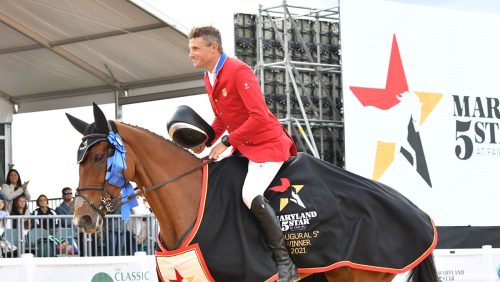“Riding a horse is not a gentle hobby, to be picked up and laid down like a game of solitaire. It is a grand passion. It seizes a person whole, and once it has done so, he will have to accept that his life will be radically changed.”
-Ralph Waldo Emerson
Like most of you, I find myself seized by this grand passion that is a life with horses. If you challenged me at the dinner table to speak of anything but horses, I might be silent for a long time.
Sure, I listen to the radio when I’m driving between lessons and to horse shows (shout out to WNYC’s Radiolab!), I have a fairly insatiable appetite for books (thanks to Kindle this vagabond’s suitcase is far lighter than it used to be), and I’m deep in the throes of Season 4 of “Boardwalk Empire,” so I’d like to think that I’m at least a little bit exposed to influences other than the four-legged kind. And you’d think that someone who spends sun-up to sun-down tending to the ever multiplying needs of a herd of horses would relish a moment not spent dwelling on them, but no matter what, horses are always my favorite subject.
As we begin to get settled and established here on the East Coast, the stalls in the barn have started to fill with some new faces, which is exciting for us on many levels (especially the, “Thank God we didn’t give up everything and move across the country to only ride five horses a day and make absolutely ZERO money” level).
We have a bit of an eclectic mix right now, ranging from established three-star horses, young horses just starting out, upper-level dressage horses, and one very cute palomino preliminary pony to keep things interesting. So with such a wide range of horses, Cecily and I have dedicated plenty of dinnertime banter to how to approach each unique horse as an individual, while still staying true to our philosophy of training and developing horses in general, which is basically the same no matter how hot or cold, young or old a horse is.
In all of this reflecting, we’ve come to understand our own approach to the horses more fully, and we have come to appreciate more deeply that our horses are not only our partners, but also our students, our dependents, our companions and above all, our teachers.
They challenge us to find effective ways to communicate, ways to find patience in the face of frustration or fear. In order to truly be successful with a horse, we must endeavor to understand them, not just their biological instincts and responses, but also their deeply individual personalities and motivations beyond what nature programmed generations ago. We must inspire our horses to trust that we are dependable, predictable and worthy partners, and we must attempt to live up to that every time we share space with them.
When we compete our horses, we are asking them to take all of the skill and understanding that we have delicately planted between us as partners over time, and all of the strength and flexibility and reflexes that they’ve developed over years of training, and perform in one crucial moment the fruits of that dedication.
ADVERTISEMENT
Winning should never be a by-product of cutting corners or artificial or pharmaceutical means. Rather it should be a reflection of a deep bond formed from hours of sweat and tears, practice and commitment.
We must labor to be athletes ourselves: balanced, elastic, toned and fluid. There has to be a level of self-awareness when we’re on and around our horses, and our movements must be reciprocal.
Just as we wring our hands over our horses’ fitness, we must be equally appreciative of the fact that our horses can only be as good as their jockey, and not ask them to make up for our weaknesses. There will be many unplanned opportunities for our mounts to step in and cover up our mistakes, so we should at least start from a positive balance.
We must strive to be in control of not just our bodies, but of our minds as well. Long-term and short-term planning is a necessity, but we need to be prepared for best laid plans to be scrapped on a moments notice. While we must remain flexible to changing circumstances and needs, and always seeking input and advice from those who know more than we do, it’s important to remain confident in one’s own program and in the intimate knowledge that only someone who spends each day with a horse can have.
One of the only guarantees with horses is that there will be disappointment, so we must find enough satisfaction in the daily experiences with our horses that we can weather those storms. Decisions must be made with the well being of our horses in the forefront of our mind, so that we can sleep at night, because sleep is a rare enough commodity as it is with horses.
We must treat our horses as athletes and see that their bodies are well supported. We must strive to be in tune enough with our horses that we can identify aches and pains and asymmetries before they become lamenesses and injuries.
And we will fail at that time and time again despite our best efforts. But we will search our memories for missed or overlooked signs or wrong decisions, and we will pledge to ourselves and to our horses to do better next time.
Just like human athletes, a horse that is physically sound and primed is a large part of the pie, but the recipe is not complete unless the horse’s mind and spirit are well looked after. We must seek to create comfort in every horse’s life and joy in their work. Though modern horse management is a far cry from herds of horses roaming the plains, foraging on grasses and bark, we must commit ourselves to providing our horses with time and space to feel like horses, not caged animals or housecats.
ADVERTISEMENT
If we expect them to put effort and focus into their workouts, we have to make their workouts feel productive, successful and logical to them. Every challenge must be met with a reward; every pressure must result in a well-timed release.
Training is methodical and is measured in months and years, muscle tone, and relaxation during work. Training is something that happens on a daily basis in the stable and in the arena. If one finds themselves, like we all do from time to time, attempting to train at the horse show, then we’ve missed something along the way, or our expectations were improperly calibrated, and we’ll have to spend some time reflecting.
There is a horse that will challenge every age-old rule, and we will be forced to constantly evaluate what we think we know and look for new ways to understand and communicate with our horses.
Every horse will appreciate kindness and patience, and almost every horse will walk all over us, some to the point of danger, if we mistake kindness and patience for a lack of clear and enforced rules and expectations.
A life dedicated to horses is a lifelong commitment to learning, to uncovering weaknesses or deficits and building them into strengths. This is a humbling process, one that will remind anyone who suspects that they have mastered the discipline that they are nothing more than a lower classman in a school that never hands out diplomas.
Matt Brown has been a lifelong student of the sport of three-day eventing, studying under some of the most respected names, including Derek di Grazia, Volker Brommann and Denny Emerson. He also credits horseman and rancher George Kahrl for helping him learn how to create a trusting relationship between horse and rider, even at the top levels of competition. As a young rider, Matt competed through the advanced level with his Appaloosa Maximum Speed, who was his mount for the North American Young Rider Championships in 1993.
More recently, Matt has been named to the USEF High Performance Training Lists since 2013. In April of 2015, Matt and his wife Cecily moved from California to Cochranville, Pa., to continue chasing his dream of representing Team USA. In October, Matt and Super Socks BCF placed sixth in their first European competition at the Boekelo CCIO3* in the Netherlands. After being nationally listed for the third year in a row, Matt’s sights are set on Rio 2016 Olympic Games.
You can read all of Matt’s insightful blogs for the Chronicle here.







